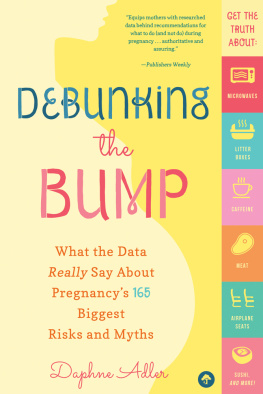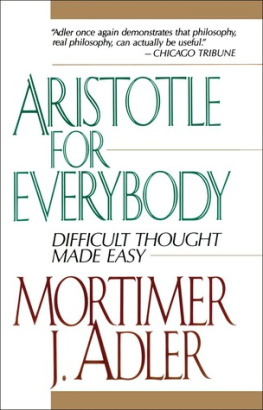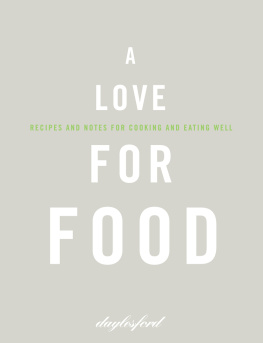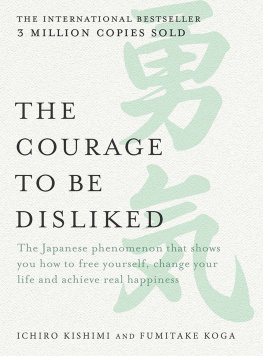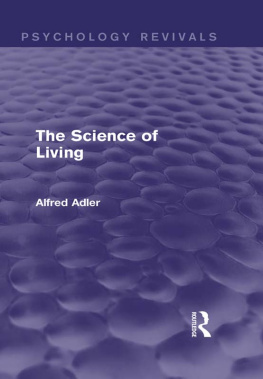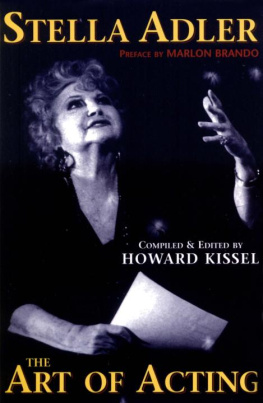sarah Adler - Simply Real Eating
Here you can read online sarah Adler - Simply Real Eating full text of the book (entire story) in english for free. Download pdf and epub, get meaning, cover and reviews about this ebook. year: 2019, publisher: Countryman Press, genre: Home and family. Description of the work, (preface) as well as reviews are available. Best literature library LitArk.com created for fans of good reading and offers a wide selection of genres:
Romance novel
Science fiction
Adventure
Detective
Science
History
Home and family
Prose
Art
Politics
Computer
Non-fiction
Religion
Business
Children
Humor
Choose a favorite category and find really read worthwhile books. Enjoy immersion in the world of imagination, feel the emotions of the characters or learn something new for yourself, make an fascinating discovery.

- Book:Simply Real Eating
- Author:
- Publisher:Countryman Press
- Genre:
- Year:2019
- Rating:5 / 5
- Favourites:Add to favourites
- Your mark:
- 100
- 1
- 2
- 3
- 4
- 5
Simply Real Eating: summary, description and annotation
We offer to read an annotation, description, summary or preface (depends on what the author of the book "Simply Real Eating" wrote himself). If you haven't found the necessary information about the book — write in the comments, we will try to find it.
Simply Real Eating — read online for free the complete book (whole text) full work
Below is the text of the book, divided by pages. System saving the place of the last page read, allows you to conveniently read the book "Simply Real Eating" online for free, without having to search again every time where you left off. Put a bookmark, and you can go to the page where you finished reading at any time.
Font size:
Interval:
Bookmark:
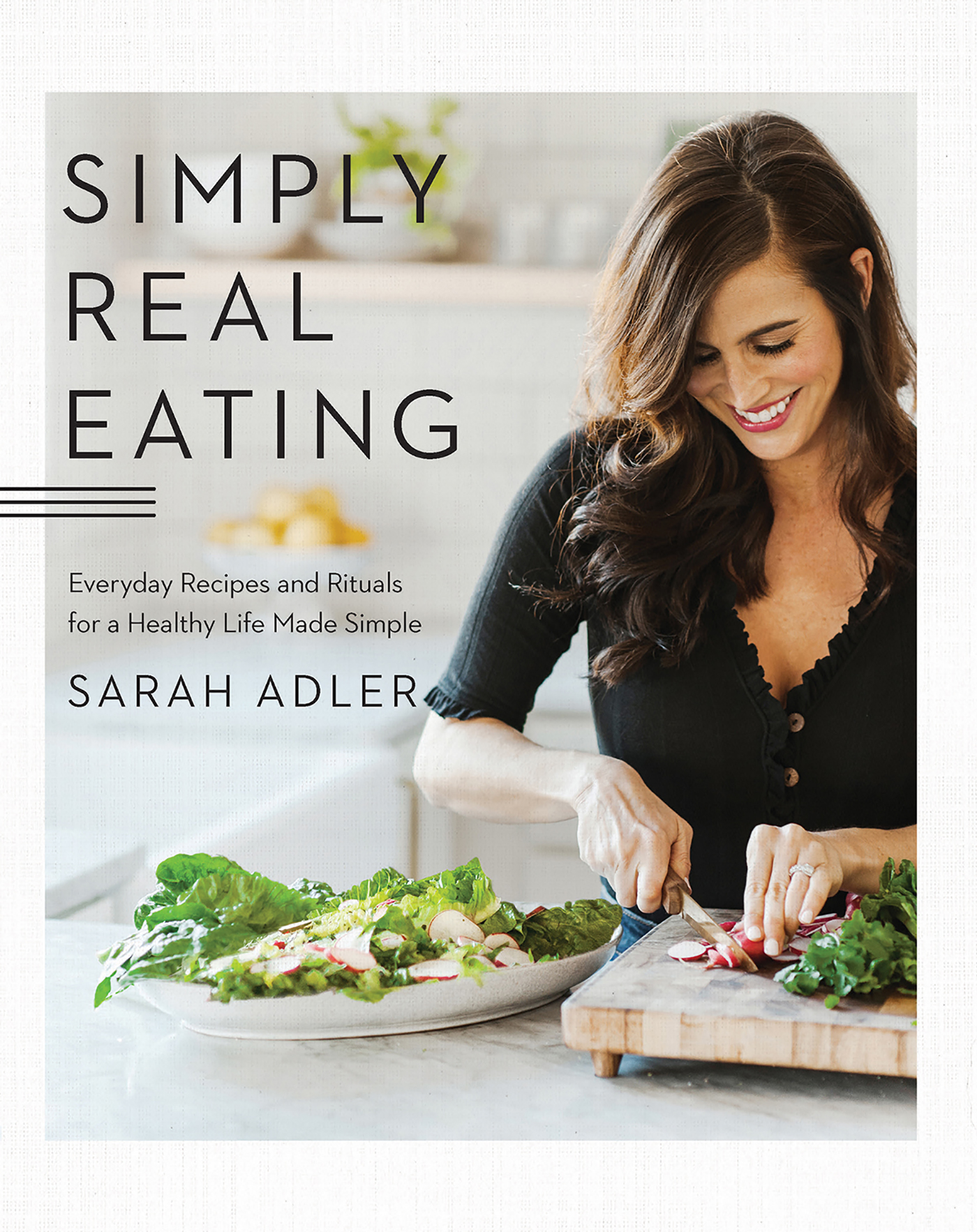
REAL
EATING
 To my sweet family, dear friends, and the entire Simply Real Health community: this book is for you. Thank you for your endless love, encouragement, and support, and for allowing me into your kitchens and daily lives, in ways big and small. I hope this book brings you years of vibrant health, happiness, and the best memories around your table with the people you love the most. And to Kyle, my forever and once-in-a-lifetime love and the best recipe tester around. And to my sweet Noah James: this book will always be the one that we made together.
To my sweet family, dear friends, and the entire Simply Real Health community: this book is for you. Thank you for your endless love, encouragement, and support, and for allowing me into your kitchens and daily lives, in ways big and small. I hope this book brings you years of vibrant health, happiness, and the best memories around your table with the people you love the most. And to Kyle, my forever and once-in-a-lifetime love and the best recipe tester around. And to my sweet Noah James: this book will always be the one that we made together. At times, its been one of my big loves; and at others, its been an uphill battle: one filled with frustration, confusion, and information overload. But one thing is for sure: from as early as I can remember, I have always been completely obsessed and fascinated with the idea of living a healthy life. At the age of seven, there was almost nothing I loved more than going to the natural food store to pick out my healthy cereal and snacks for the week. By middle school, as other kids were collecting two-dollar bills, and makeup, I began to collect all the books and information about healthy eating that I could find: old college nutrition textbooks, diet books, fitness and health magazines, you name it. I consumed them the way other girls read teen magazines: with fervor, cuddled up, and secretly so no one would tease me. By 15, I had read almost every book on nutrition out there, and had started using my body as a test case to try out all the different food theories.
It was always just for fun back then, and because I truly loved it. But my innocent love of health started to become more of an unhealthy obsession. I became fixated with strictly following all the diet rules, eating perfectly, and never missing a workout. My perfectionist tendencies started taking over the rest of my life. I dreaded Friday night sleepovers full of pizza and candy, going out to eat with people who happily devoured their burgers and fries while making fun of my plain salad, or traveling, because it messed up my perfect and healthy routine. In college, things only got worse as I had less and less control over my food and daily schedule.
Id try to work out more (calories in, calories out! echoing in the back of my mind as I bounced on the treadmill) and became fixated on each new trend or diet. For four years straight, Im pretty sure I survived on cereal with soy milk, nonfat yogurt, oatmeal, protein bars, popcorn, and frozen low-cal burritos. Back then, food always lurked in the back of my mind: something to be battled against, controlled, and always aware of. It always felt like a lot of workso much time and energy and planningjust to be healthy. But, truthfully, I didnt have much to show for all that effort. No matter what I tried or did, my body never changed that much.
I always had those last five I was determined to lose. My skin still had breakouts. I craved sugar after meals. Mentally, I was always looking for and fixated on shortcuts and work-arounds: how could I fool my sweet tooth or trick my body into never being hungry or magically burning more fat? All of that changed my junior year, when the universe lovingly intervened: I got news that I had been accepted into a study-abroad program to Italy. And instead of feeling pure joy and excitement, all I could do was panic. Italy.
The land of pizza and pasta. Where gelato and wine were daily occurrences. And where there were exactly zero gyms, workout classes, or running shoes allowed. To everyone else, this was all part of the magicbut to me, all it did was give me anxiety. What would I do? What would I eat? And most important, and what I wouldnt say out loud: how much weight would I gain? I almost didnt go on the trip. By some act of grace, I ended up boarding the plane.
I had a suitcase packed full with as many of my high-fiber protein bars as possible, my Nikes, and all my willpower and determination to beat the Italians and their pizza game. And it was a good thing I prepared, I remember thinking. Because Italy was exactly like I thought it would be. The rumors were true: they really did eat pizza and pasta every day, walked instead of worked out, and had wine and gelato the way we guzzled coffee in Seattle: at or in between every meal, and without a second thought. I remember sitting in a piazza one afternoon, across from two beautiful Italian women catching up for lunch. They were sitting with their faces tilted to the sun, chatting with each other, as their plates of pasta and salad sat piled high in front of them.
They slowly swirled their glasses of wine and laughed. I sat, fascinated, and watched. They would slowly take bites of their pasta, twirling and talking, sipping and pausing. Calmly. Serenely. And so extremely present with each other, and in the moment.
There was zero frantic energy, no pushing food around with their forks, no asking the waiter to please box up half of their food to go, and no talk of the carbs on their plates or the sugar in their wine, or being bad that afternoon. Suddenly, it hit me so hard. I realized that I had never had a meal like that in my life: so peaceful, joyful, and in tune with who I was with, instead of consumed by the thoughts in my head. I could never just be or just enjoy a meal. My brain always felt full and occupied: always thinking about food. I was always calculating, making deals with myself about what to eat or not eat, how good or bad I was being, or what I would have to adjust to balance things out later.
Of course, there was no room for the joy I was witnessingthat delight, that pleasure, that pure enjoyment of food. My headspace was already too crowded. I sat there, with my half of pizza pushed to the side of my plate and my plain water beside it. I want what theyre having. It was the first moment I realized that having more joy with food didnt have to mean gluttony. It didnt mean you had to not care about your body and how you felt. But it did mean there was a lot more to the picture than I had thought.
There was something else involved, a secret that these women were in on. Thoughts filled my head, as I sat there. But, wait, how?! Like, seriously, how were they doing that? How did they look so good while eating all the foods I had been taught were the worst you could eat? I spent the rest of my trip determined to find out. The more I observed, the more I noticed that it wasnt just those two womenit was everyone in Italy. It must just be the food, I thought. Its different here.
More magical. And, yes, that was true. The food was simple. It was all fresh and pure. It was all homemade and homegrown. It was all real food, made from scratch. But that wasnt all. It was the way they were about their food, too.
And the role it played in their daily lives: it was a celebrated, sacred, and treasured part of life, meant to be enjoyed. Food was something to be restored and revived by. It was a pause in the day, to just be. To connect. To love and to share with others. It was something they happily made the space for in their days, not something they were inconvenienced by or rushed through.
Food was a pillar in their lifea value, instead of an afterthought. They treated it, and their time spent with it and those they loved, with so much more beauty and respect than I had ever seen. When I arrived back home, I decided to give it a try. To be like an Italian. To ignore all the noise, all the numbers and counting and measuring and obsessiveness, and just do as they did: eat simple, real food when they were hungry. I made it my goal to eat food that my body could more easily process, no matter the category or kind it was.
Font size:
Interval:
Bookmark:
Similar books «Simply Real Eating»
Look at similar books to Simply Real Eating. We have selected literature similar in name and meaning in the hope of providing readers with more options to find new, interesting, not yet read works.
Discussion, reviews of the book Simply Real Eating and just readers' own opinions. Leave your comments, write what you think about the work, its meaning or the main characters. Specify what exactly you liked and what you didn't like, and why you think so.


